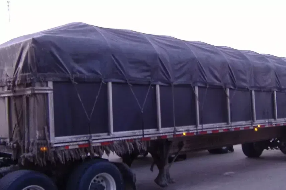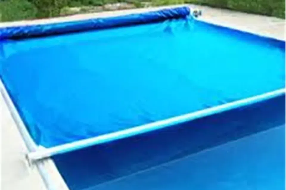Hot Keywords:
- All
- Product Name
- Product Keyword
- Product Model
- Product Summary
- Product Description
- Multi Field Search
PVC coated fabric, as a widely used semi-finished material, has become a core raw material in fields such as truck tarpaulin, tents and outdoor products due to its waterproof, wear-resistant and weather-resistant properties. For purchasers, the appropriate thickness of PVC-coated fabric is directly related to the performance, cost and service life of the end products. This article will analyze the applicable scenarios of PVC-coated fabrics of different thicknesses for you, helping you select the appropriate thickness.
PVC coated fabric is composed of base fabric (polyester fiber) and PVC coating, and its total thickness is usually between 0.1mm and 1.5mm. The thickness difference directly affects the following key indicators:
Mechanical strength: The greater the thickness, the stronger the resistance to tearing and puncture
Weather resistance: The thick coating is more effective in resisting ultraviolet rays and acid rain erosion
Flexibility: Thin materials are easier to fold and bend
Weight and cost: For every 0.1mm increase in thickness, the material cost rises by approximately 8-12%
0.1-0.5mm (lightweight)
Terminal products: Temporary sunshades/activity tents
Advertising banner/pull-up banner
Lightweight dust cover
Agricultural insect-proof net


Such scenarios have high requirements for the portability and economy of materials. For instance, temporary exhibition tents need to be frequently disassembled and reassembled. PVC fabric with a thickness of 0.4mm can not only ensure an outdoor service life of 1-2 years but also reduce transportation costs.
Terminal products: Truck/cargo ship tarpaulin
Storage waterproof tarpaulin
Geotextile
Swimming pool cover
Outdoor furniture cover
Inflatable amusement facilities


0.6-0.8mm is the thickness range with the largest market usage. Take the truck tarpaulin as an example. A thickness of 0.6mm can balance the wind pressure resistance performance (it needs to withstand a wind speed of 60km/h) and the load limit of the vehicle body.
Terminal products: Industrial oil storage tank cofferdam
Chemical defense fence
Large inflatable warehouse
Heavy machinery protective cover


Heavy-duty PVC-coated fabric is suitable for professional application scenarios in extreme environments. Chemical defense fences should be made of a thickness of 1.0mm or more and flame retardants added to ensure resistance to acid and alkali corrosion and fire resistance.
Terminal products: Helicopter landing pad
Marine pontoon bridge components
Hazardous chemicals transport containers
PVC coated fabric with a thickness exceeding 1.3mm usually needs to be custom-produced. Both the helipad pad and the Marine floating bridge components need to pass a 5,000-hour salt spray test, which imposes strict requirements on the corrosion resistance of the coating.
Choosing the appropriate fabric thickness not only enables the production of excellent products but also helps to control costs to the greatest extent. It is suggested that purchasers pay close attention to the various parameters of PVC-coated fabrics and jointly develop customized solutions with suppliers. Through the above article, we believe you must have a certain understanding of the fabric thickness suitable for different terminal products. If you still have any difficulties in selection, please do not hesitate to contact us.